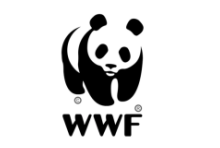To achieve that, we spend a lot of time working with communities, with politicians and with businesses too.
Most of the threats to wildlife and habitats come from human pressures and increasing demand for food, fuel or water.
To address these threats to the natural world we’ve set ourselves ambitious targets on six ‘big wins’. We’ll meet these, and other key challenges, by 2018.
Populations of 10 of the world’s most iconic and threatened species are safeguarded.
Read More
To achieve that, we spend a lot of time working with communities, with politicians and with businesses too.
Most of the threats to wildlife and habitats come from human pressures and increasing demand for food, fuel or water.
To address these threats to the natural world we’ve set ourselves ambitious targets on six ‘big wins’. We’ll meet these, and other key challenges, by 2018.
Populations of 10 of the world’s most iconic and threatened species are safeguarded.
Our focus is on tigers and other species in Asia: Amur and snow leopards, Javan rhinos, orang-utans, freshwater dolphins and porpoises, and giant pandas. Elsewhere we support black rhinos and polar bears.
There’s a significant increase in the area of forests and oceans effectively managed and protected.
Millions of hectares of forest habitats will be maintained in the eastern Himalayas, east Africa and the Amazon. In the oceans, we’re focusing on: tuna fisheries in the Pacific and western Indian oceans; the polar regions; and the seas around the UK and Europe.
Four of the world’s great rivers – the Yangtze, Mekong, Ganges and Amazon – have secured or improved flows, and UK rivers are restored.
We'll influence policies on dam building, as well as river basin management plans with diverse stakeholders including those using British chalk-streams.
Sustainable timber and seafood traded
Timber and seafood sectors in the UK are radically changed.
This builds on our work with retailers and wholesalers to ensure sustainable trade, based on sustainable production and supported by sustainable consumption – so that natural resources are maintained and even restored.
Carbon emissions reduced
We’ve worked in coalitions to shift energy policy and reduce carbon emissions sufficiently to avoid catastrophic impacts of climate change.
We’ll continue to press for strong climate targets and work with the WWF Network to reduce carbon emissions in major new economies.
We’ve ensured that the true values of nature are reflected in political and economic decision-making in our priority places.
This will support sustainable development by integrating the value of environmental resources and biodiversity into national polices, and relating this to decisions on landscape planning.
Hide Full Text